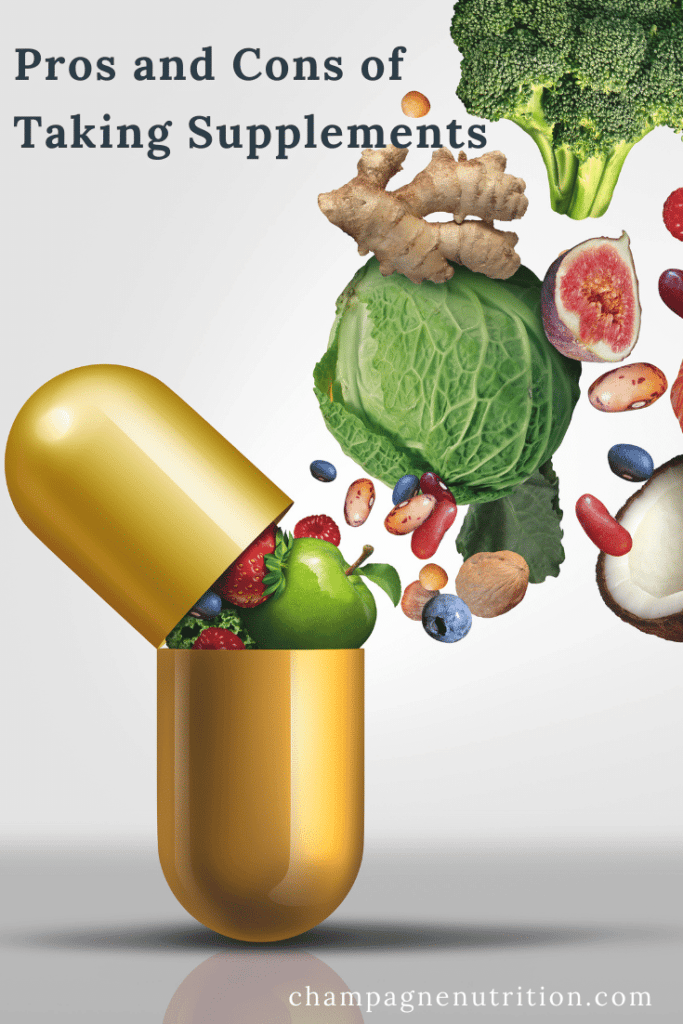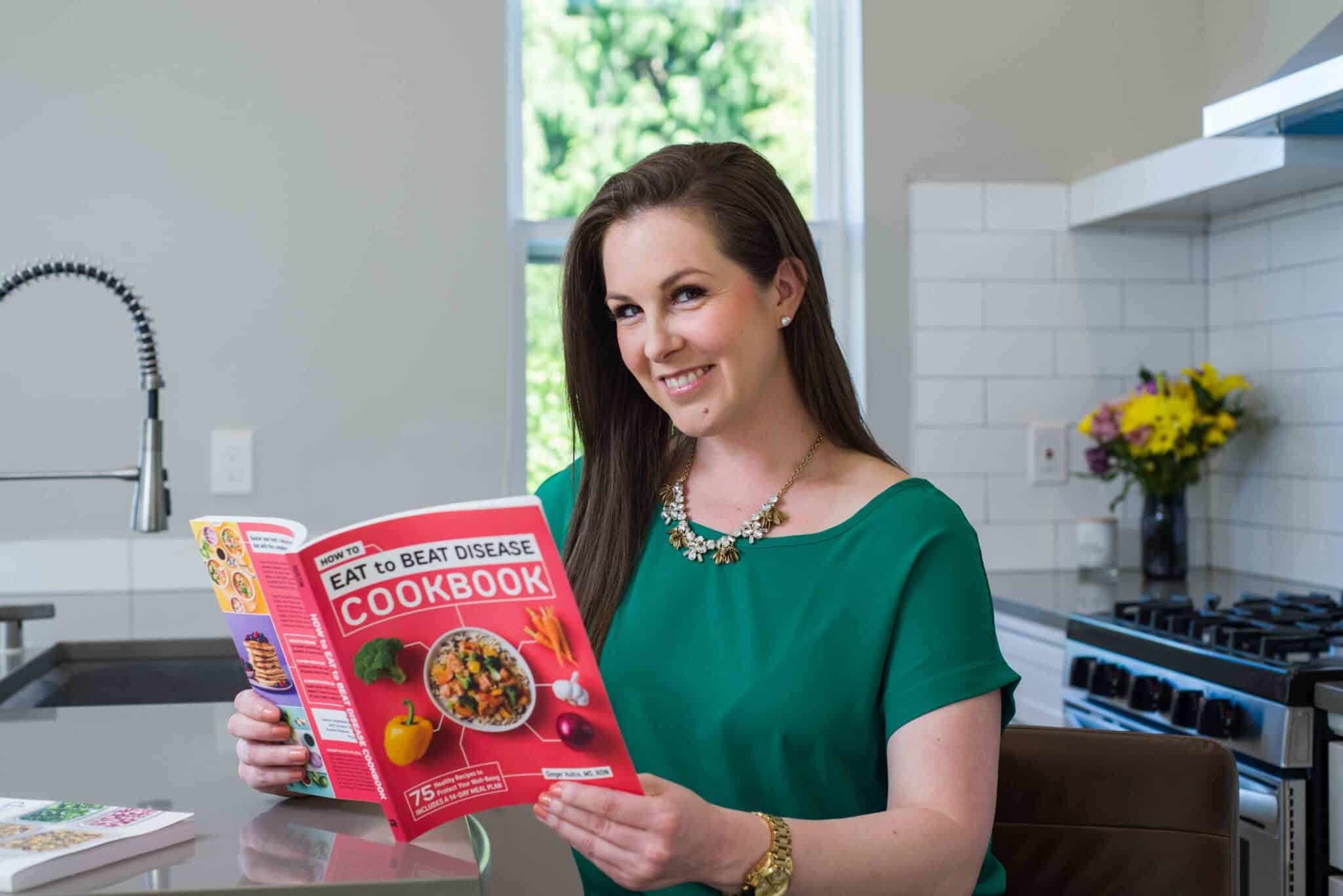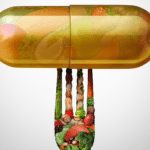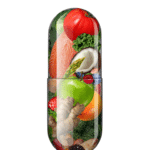Pros and Cons of Taking Supplements
May 3, 2019 by Ginger Hultin MS RDN
Have you ever found yourself in the supplement aisle at a store (or worse, in an entire store just for supplements) staring at the 20 varieties of the same item in different doses, types, mixtures and preparations? Perhaps a doctor, dietitian or naturopath told you to take vitamin D or fish oil. Maybe a friend told you that elderberry cured her flu and that you should try it too. Hormone balance. Bone building. Immune supporting. Skin improving. Inflammation slashing…..why are we taking these products? Do they work? Are they worth the money or are we (literally) flushing money down the drain?
I’m here to help with my discussion about the pros and cons of taking supplements. As a nutrition expert trained in the subject, I’ve got you. Let’s chat.
Supplements can be confusing…
I remember when I took a class entirely on supplements in my masters in nutrition program at Bastyr University here in Seattle and our professor told us that one day, when we were dietitians, a patient would come to us with a bag full of supplements, drop it at our feet and say: “what do I do?” This struck terror in our hearts of course. It’s SO complicated! With such a lack of regulation in the US regarding quality or efficacy, what’s to be trusted and how can we know what someone needs or doesn’t?
Just a couple years later, working at an integrative cancer care center, this is exactly what happened. Every day. Baskets, boxes and backpacks FULL of supplements of all variety dropped at my feet. Are supplements helping or hurting? “Help me”. And I could! Because there are some really simple things you can do when you’re trying to figure out what to do with all your supplements. Toss out expired ones. Look to see how many times an individual ingredient is showing up in several different products (adding up to dangerous levels sometimes). And my personal favorite: get blood testing!! It’s the absolute easiest way for me or any provider to understand exactly what you need. Vitamin D, ferritin, cholesterol and triglycerides, CRP/inflammation – these are so helpful in understanding what might be needed for you as a unique individual.
It’s important to talk to an expert about supplements
I absolutely love talking supplements with people. It requires a deep knowledge of biochemistry, guidelines, regulation and the needs for different dietary patterns, stages of the lifecycle and health conditions. Please, PLEASE, don’t take advice from someone who isn’t medically trained or who has a benefit to them in selling you supplements. Don’t listen to testimonials or individual recommendations – what’s good for one person isn’t necessarily good for another. Get professional guidance. That’s what people like me do for a living!

What are the pros of taking supplements?
There are many people who really need supplements: kids/teens (picky eaters), pregnant and lactating women, people over 50 years of age, those at risk for bone density problems, people with high blood pressure, high cholesterol or triglycerides, those with chronic diseases like autoimmune or cancer, athletes,vegans, people on the keto diet…..and many more. Supplements can be an important tool to correcting nutrient deficiencies in these populations. Although generally it’s best to get nutrients from food, some supplements can be helpful for the otherwise healthy individual as well.
For example, here in Washington many of us need to take a vitamin D supplement because there isn’t enough sunlight year round for our skin to generate vitamin D. It can be difficult to get enough from food to make up for the lack of sunlight so a supplement can provide vitamin D. Some supplements can help us get important nutrients that our diets may lack even if we seem healthy. Fatty fish provides omega 3s that are a key component in reducing inflammation, but not everyone wants to eat fish regularly. Taking fish oil can ensure that you’re getting those omega 3s!
There is a place for supplements when they’re needed, but it’s important to understand that they may not be necessary for everyone and each individual is different and has different needs.
What are the Cons of Taking Supplements?
You may wonder if supplements are harmful. The bottom line on whether or not supplements are helping or hurting is: it depends (sorry). You can take too much of pretty much any supplement. And when people tell you “you just pee them out”…well, there are biochemical interactions happening in the body before that happens so that is not really a truthful statement. It’s impossible for me to know what you need by just looking at you. I need a lot more information and hopefully some data from blood tests, too.
Generally, a healthy person with a balanced diet probably needs little to no supplements. It’s amazing what you can get through food. Some supplements are unnecessary and may cause toxicity. There aren’t strict regulations on supplements like there are for medications so it’s easy for a potentially dangerous supplement to make it to the shelves in the store! To ensure you’re taking safe supplements that you actually need, it’s important to talk to a doctor or dietitian.
Reading More About Supplements
If you want to read more about a variety of supplement topics, I talk about it a lot in interviews for publications. Here are some of my favorites. I’m featuring these and many more on my facebook and my twitter accounts this month so please follow me there to stay part of the conversation!
Washington Post – are single agent cures for real? Celery juice and beyond
Healthline – Ashitaba and anti-aging
The Healthy– zinc for colds and coronavirus
Mbg Food– health benefits of beetroot powder
Readers Digest – supplements that nutritionists don’t take
Food&Nutrition Magazine – Vitamin K for bone health
Please let me know what you think in the comments! I’d love to hear your questions and feedback about supplements. I talk about this a lot so make sure to hit me up on my site or direct message on social media to chat further about your unique needs. And please sign up for my newsletter so that you can follow along with important topics like this one in the future!
4 Comments
Leave a Comment

Ginger Hultin,MS, RD, CSO
Thanks for visiting! If you're struggling with a cancer diagnosis, autoimmune condition, gut health problems, or even a medical mystery, nutrition can make a HUGE difference in your day-to-day life. I run a virtual, concierge private practice where I partner with my clients over time to help them improve their health through nutrition. Be sure to visit the blog for easy, plant-based, anti-inflammatory recipes and our "Resources" page for a variety of self-paced programs, books, e-books, and nutrition podcast episodes.




Very helpful information on supplements. Thank you!
So glad it was helpful!
I appreciate how you pointed out that while eating nutritious foods is the greatest way to receive nutrients, supplements can still be beneficial for someone who is otherwise healthy. Since her daughter has been such a picky eater, my sister has been worried about her. I believe trying this out would be a terrific idea, so I’ll make sure to let them know about it and look into experts who could help them decide which is the most suited supplement for their child.
Wonderful! I hope that you all could meet with a pediatrician and registered dietitian to discuss. Glad it was helpful!